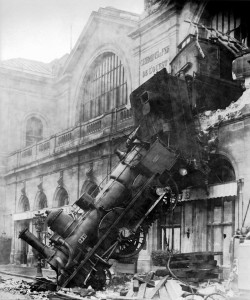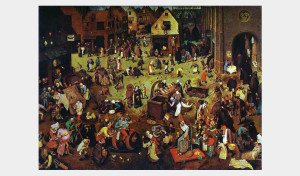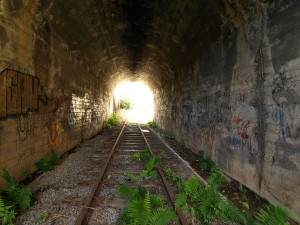We were privileged to file today a petition for certiorari with the Supreme Court of the United States on behalf of our client, art dealer Alexander Khochinsky. The petition asks the Court for reinstatement of a lawsuit against Poland for lack of subject matter jurisdiction (i.e., sovereign immunity) for Poland’s effort to have Khochinsky extradited from New York as leverage to force him to relinquish a painting that he inherited from his father. The case invokes three provisions of the Foreign Sovereign Immunities Act, 28 U.S.C. § 1605 (the FSIA): the implicit waiver exception, the counterclaim exception, and the non-commercial tort exception. The basis on which we seek the Court’s review is simple: if the holding below is the law, then no one is safe in the United States from any number of rogue regimes that abuse the extradition system for discriminatory and persecutory reasons. To allow this decision to stand is a threat to any American. What if, for example, Turkey pursued a Christian American in similar fashion motivated by religious animus about owning a particular kind of art from the Ottoman Empire? What if the Taliban, now the de facto government of Afghanistan, declared a worldwide intention to find Jews in possession of Pashto cultural property? What if China declared American intellectual property to be revolutionary patrimony?
Art Dealer and Holocaust Claimant Asks Supreme Court to Hear Dispute Over Poland’s Vendetta Against Him
Topics: China, Alexander Khochinsky, Holocaust claims, extradition, FSIA, "Girl with Dove", Foreign Sovereign Immunities, Poland, Sullivan and Worcester LLP, 28 U.S.C. § 1605, Operation Barbarossa, Taliban, Afghanistan, Turkey, Pashto
Alexander Khochinsky Petitions DC Circuit to Rehear en banc His Holocaust Restitution Retaliation Case Against Poland
Last week, on behalf of our client Alexander Khochinsky, an art dealer, we filed a petition to rehear en banc the June 18, 2021 decision by a three-judge panel affirming the dismissal of the lawsuit against Poland for lack of subject matter jurisdiction (i.e., sovereign immunity). The case invokes three provisions of the Foreign Sovereign Immunities Act, 28 U.S.C. § 1605 (the FSIA): the implicit waiver exception, the counterclaim exception, and the non-commercial tort exception. The basis on which we seek rehearing is simple: if the holding of the District Court and panel of the DC Circuit is the law, then no one is safe in the United States from any number of rogue regimes that abuse the extradition system for discriminatory and persecutory reasons.
Topics: Alexander Khochinsky, Holocaust, extradition, FSIA, "Girl with Dove", Poland, Operation Barbarossa, Law and Justice Party, Judge Rakoff, SDNY
France Rejects Poland’s Bad Faith Efforts to Extradite Art Dealer Alexander Khochinsky
My client Alexander Khochinsky is safely back in the United States after an eight-month ordeal spurred by Poland’s retaliation for his assertion of restitution for his mother’s property lost in Poland during the Holocaust. The rejection this month by the French courts of Poland’s request to extradite my client for prosecution in the courts of Poland—courts called out as lacking judicial independence by the European Court of Justice—was the second failed attempt by Poland to abuse the international extradition system, and came directly on the heels of being held in default in Khochinsky’s lawsuit here in the United States for damages arising out of Poland’s bad-faith extradition effort that ended in 2015. Khochinsky is represented in France by Jean-Jacques Neuer.
Topics: Alexander Khochinsky, Nazi-looted art, Red Army, extradition, FSIA, "Girl with Dove", Antoine Pesne, Poland, Przemysl, USSR, Belzec, Lviv, Uzbekistan, European Court of Justice, Paris Charles de Gaulle, Tashkent, 28 U.S.C. § 1607, 28 U.S.C. § 1605(a), Paris Court of Appeal
Poland Renews Efforts to Extradite Art Dealer Alexander Khochinsky, Whose 2018 Lawsuit Seeks Damages for Poland’s Previous Retaliation for his WW II Restitution Claims
Alexander Khochinsky, the son of a Polish Jew who fled her home just steps ahead of the German invasion in 1941, was detained at Paris Charles de Gaulle Airport yesterday. The current detention parallels Poland’s previous failed attempts to extradite Khochinsky from the United States in 2015, a request that was dismissed and which led to his pending lawsuit for that retaliatory extradition attempt. Khochinsky, an art dealer, reached out to Poland about a painting, Girl with Dove, that he had inherited from his parents that looked similar to one that Poland was seeking, and asked to open a dialogue about what had happened to his mother’s home. In response, Poland charged him with a crime and asked the United States to extradite him for prosecution. The U.S. District Court in Manhattan dismissed the request for extradition in 2015, but by then Khochinsky had suffered months of detention and the destruction of his business. Khochinsky—an American citizen—was detained just before boarding his flight to New York on Monday and informed that there was an Interpol or European request for his extradition made by Poland.
Topics: Alexander Khochinsky, Red Army, "Girl with Dove", Sullivan & Worcester LLP, Poland, Molotov-Ribbentrop Pact, Przemysl, Leningrad, Paris Charles de Gaulle Airport, Hague Convention on the Service Abroad, Jean-Jacques Neuer, Polish Central Authority, USSR
Alexander Khochinsky Files Suit Against Poland for Retaliation Related to WW II Property Claims
(WASHINGTON, D.C.-June 27, 2018) Alexander Khochinsky, the son of a Polish Jew who fled her home just steps ahead of the German invasion in 1941, has filed a lawsuit in the U.S. District Court for the District of Columbia against Poland for that country’s efforts to extradite him after he sought restitution of his mother’s property. Khochinsky, an art dealer, reached out to Poland about a painting, Girl with Dove by Antoine Pesne, that he had inherited from his parents and that looked similar to one that Poland was seeking, and asked to open a dialogue about what had happened to his mother’s home. In retaliation, Poland charged him with a crime and asked the United States to extradite him for prosecution. The U.S. District Court in Manhattan dismissed the request for extradition in 2015, but by then Khochinsky had suffered months of detention and the destruction of his business.
Topics: Alexander Khochinsky, Nazi-looted art, Red Army, Holocaust, extradition, "Girl with Dove", Sullivan & Worcester LLP, Antoine Pesne, Poland, Nicholas M. O'Donnell, Molotov-Ribbentrop Pact, Przemysl, Leningrad
Back in September, we voiced curious skepticism about breathless reports of a buried train near Wrocław, formerly Breslau, in Poland. Rumors of this “Nazi gold train” supposedly concealed at the end of World War II and filled with either gold, art, or both, had an odd mixture of plausibility and absurdity. Yet Polish officials went on record confirming…something. On August 28, 2015, Deputy Culture Minister Piotr Zuchowski stated at a press conference that he is “99 percent sure” that the government had located the train allegedly loaded with gold, gems, and perhaps artwork that was buried as the Soviet Red Army encircled Breslau in the last months of World War II. “The train is 100 meters long and is protected,” Zuchowski said.
Topics: Soviet, Breslau, Wrocław, Piotr Koper, Red Army, Nazi Gold Train, Walbrzych, Deputy Culture Minister Piotr Zuchowski, World War II, Poland, Washington Post, Janusz Madej, Andreas Richter, New York Times
Bruegel Painting In Vienna Spurs Argument Over Allegations of Nazi Looting in Poland
Most often in restitution battles the disagreement boils down to whether a painting was looted, and/or whether it changed hands under circumstances that failed to pass clear title to the predecessor of its current possessor. Then, controversy frequently ensues about the extent to which the possessor resists restitution on grounds other than the title of the painting (jurisdiction, statute of limitations, etc.). Rarer is the type of dispute where the parties don’t even agree about what they’re disagreeing about, like the one brewing between Austria and Poland over a painting by Pieter Bruegel the Elder that hangs in the Kunsthistorisches Museum (KHM) in Vienna, The Fight Between Carnival and Lent (1559).
Topics: Musée des Beaux Arts, Brussels, Krakow, Nazi-looted art, Diana Blonska, Gauleiter, Otto Gustav von Wächter, Feliks Kopera, Charlotte Wächter (née Bleckmann), Restitution, Kampf gegen Fasching und Fasten, Frau Wächter, Pieter Bruegel the Elder, Kunsthistorisches Museum, Poland, Austria, Museums, Vienna, The Battle Between Carnival and Lent
$43.7 Million Interim Judgment Entered Against Russia for Refusal to Restitute Chabad Library
It has been quite some time since there was occasion to update the dispute between the Chabad Lubavitch movement and Russia over Chabad’s efforts to obtain the return of the library of the movement’s late rabbi Menachem Schneerson and his predecessors (each known in his respective era as the “Rebbe”). There is now a major development. The court has granted the Chabad plaintiffs’ request to turn the daily sanctions that began to accrue in 2013 into an interim judgment, that is, to tally the $50,000 daily fines to date. The U.S. District Court in Washington, DC has done so, and entered a judgment against the Russian Federation, the Russian State Military Archive, the Russian State Library, and the Russian Ministry of Culture and Mass Communication, for a total of $43.7 million. Notably, the judgment will increase automatically by $4.5 million every 90 days if not satisfied; the plaintiffs will not have to return to the court and ask for an amended judgment. Plaintiffs have already begun efforts to identify assets from which that judgment could be collected.
Topics: Latvia, Sberbank, Nazi Germany, Russian State Military Archive, Menachem Schneerson, Russian Ministry of Culture and Mass Communication, Foreign Sovereign Immunities Act, Rebbe, 28 U.S.C. § 1603, Russian Federation, FSIA, Restitution, Russian State Library, World War II, Foreign Sovereign Immunities, Poland, Chabad Lubavitch, Soviet Union, Museums
What to Make of Nazi “Gold Train” Supposedly Buried in Poland
I mostly ignored the initial twitterings about a supposedly secret train laden with gold and other Nazi-looted treasures that was buried somewhere near Wrocław, formerly Breslau, in Poland. My reasons were straightforward: just like supposed sightings of the Gardner Museum heist art, or the Amber Room, the story had all the hallmarks of a fable being peddled by someone who, perhaps not coincidentally, was suggesting that they be paid something for their trouble. Whether this is the next Gurlitt saga or just Al Capone’s vault, it’s too early to tell.
Topics: the Holy Roman Empire, Al Capone’s vault, Soviet, Gauleiter Karl Hanke, Königsberg, Cornelius Gurlitt, Breslau, Wrocław, Prussia, Max Liebermann, East Prussia, Red Army, Nazi Gold Train, Amber Room, Bernsteinzimmer, the Hanseatic League, Walbrzych, Restitution, Deputy Culture Minister Piotr Zuchowski, World War II, Markus Stötzel, Poland, the Duchy of Silesia, Bohemia, Riders on the Beach, David Friedmann, the Kingdom of Poland, Gardner Museum heist, the German Empire
Glass Half Full or Half Empty? Detailed Report Published on Worldwide Efforts to Restitute Nazi-Looted Art Since the 1998 Washington Conference
After the 1998 Washington Conference on Holocaust Era Assets and the eponymous Washington Conference Principles on Nazi-Stolen Art that came out of it, it is hardly surprising that a recurring theme has been to assess the progress of those nations that participated and signed on. Equally unsurprisingly, those assessments are usually more anecdotal than empirical, and usually arise out of a particular case or cases in the context of that country’s response.
Topics: Graham Bowley, Macedonia, Netherlands, Terezin Declaration, Mussolini, Latvia, Dr. Wesley A. Fisher, Hungary, ICOM, Bulgaria, Commission for the Compensation of Victims of Spol, Germany, Bavarian Minister of Culture, Nazi-looted art, Die Welt, Belarus, Lex Gurlitt, Washington Conference on Holocaust Era Assets, France, Dr. Ruth Weinberger, Romania, Baron Mor Lipot Herzog, Winfried Bausbeck, Belgium, Slovakia, Vichy, World Jewish Restitution Organization, Bundesrat, Washington Conference Principles on Nazi-Stolen Ar, Gurlitt, WJRO, NS Raubkunst, Restitution, International Council of Museums, Norway, United States, Luxembourg, Looted Art, World War II, St. Petersburg, Poland, beschlagnahmte Kunst, Ukraine, Austria, Serbia, Conference on Jewish Material Claims Against Germa, Italy, Bosnia, New York Times, Monika Grütters, Slovenia, Estonia, Museum and Politics Conference, National Gallery, Museum of Fine Arts, entzogogene Kunst, Czech Republic









